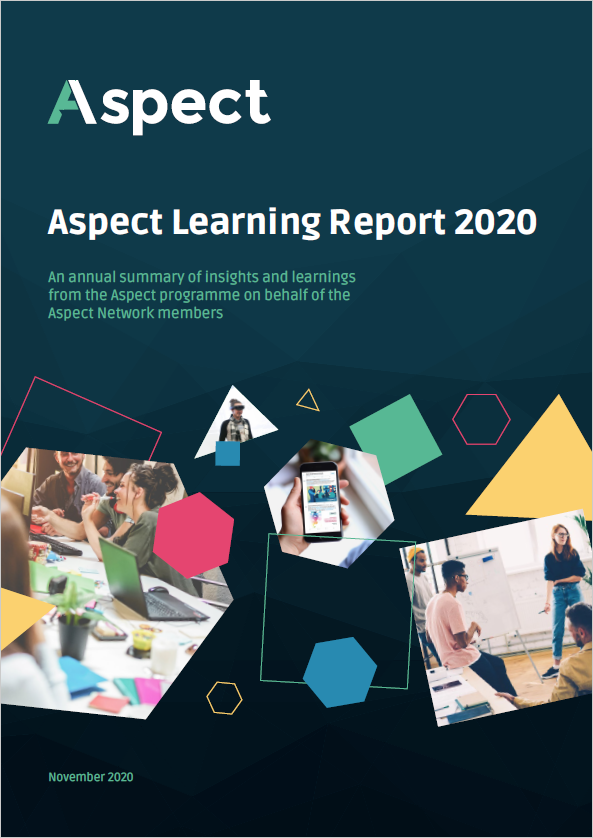
Key report sections include:
- Early learnings from collaborative projects
- An update on the LSE Commercialisation Service
- An update on Zinc
- Progress in terms of building engagement
- How the challenges facing social sciences commercialisation have been addressed
- Practical considerations relating to the sustainability of the Aspect Network
We are now at the midway point of the programme, and we’re delighted to report that our ambitious activities are progressing well, including:

16 funded projects that are well underway, which aim to test and pilot new approaches to maximising the commercial and business opportunities from social sciences research

The London School of Economics and Political Science (LSE) Commercialisation Service is now well established, and – as a social science only offering – it is proving to be a valuable platform for developing and testing new models of commercialisation

Zinc continues its programme of activities, which has supported 150 founders and engaged social scientists in 65% of the currently active ventures





